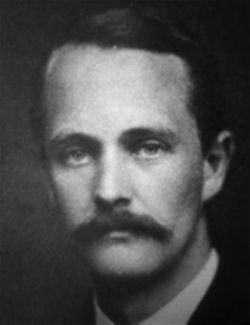The Text.--This ballad was one of two transcribed from the now lost Tytler-Brown MS., and the transcript is given here. A considerable portion of the story is lost between stanzas 6 and 7.
The Story in its full form is found in a German poem of the twelfth or thirteenth century (Der Ritter von Stauffenberg) as well as in many Scandinavian ballads.
In the German tale, the fairy bound the knight to marry no one; on that condition she would come to him whenever he wished, if he were alone, and would bestow endless gifts upon him: if ever he did marry, he would die within three days. Eventually he was forced to marry, and died as he had been warned.
In seventy Scandinavian ballads, the story remains much the same. The hero's name is Oluf or Ole, or some modification of this, of which 'Colvill,' or 'Colven,' as we have it here, is the English equivalent. Oluf, riding out, is accosted by elves or dwarfs, and one of them asks him to dance with her. If he will, a gift is offered; if he will not, a threat is made. Gifts and threats naturally vary in different versions. He attempts to escape, is struck or stabbed fatally, and rides home and dies. His bride is for some time kept in ignorance of his death by various shifts, but at last discovers the truth, and her heart breaks. Oluf's mother dies also.
It will be seen from this account how much is lost in our ballad. But it is evident that Clerk Colven's lady has heard of his previous acquaintance with the mermaiden. This point survives only in four Färöe ballads out of the seventy Scandinavian versions.
The story is also found in French, Breton, Spanish, etc.
CLERK COLVEN
1.
Clark Colven and his gay ladie,
As they walked to yon garden green,
A belt about her middle gimp,
Which cost Clark Colven crowns fifteen:
2.
'O hearken weel now, my good lord,
O hearken weel to what I say;
When ye gang to the wall o' Stream,
O gang nae neer the well-fared may.'
3.
'O haud your tongue, my gay ladie,
Tak nae sic care o' me;
For I nae saw a fair woman
I like so well as thee.'
4.
He mounted on his berry-brown steed,
And merry, merry rade he on,
Till he came to the wall o' Stream,
And there he saw the mermaiden.
5.
'Ye wash, ye wash, ye bonny may,
And ay's ye wash your sark o' silk':
'It's a' for you, ye gentle knight,
My skin is whiter than the milk.'
6.
He's ta'en her by the milk-white hand,
He's ta'en her by the sleeve sae green,
And he's forgotten his gay ladie,
And away with the fair maiden.
*** *** ***
7.
'Ohon, alas!' says Clark Colven,
'And aye sae sair's I mean my head!'
And merrily leugh the mermaiden,
'O win on till you be dead.
8.
'But out ye tak your little pen-knife,
And frae my sark ye shear a gare;
Row that about your lovely head,
And the pain ye'll never feel nae mair.'
9.
Out he has ta'en his little pen-knife,
And frae her sark he's shorn a gare,
Rowed that about his lovely head,
But the pain increased mair and mair.
10.
'Ohon, alas!' says Clark Colven,
'An' aye sae sair's I mean my head!'
And merrily laugh'd the mermaiden,
'It will ay be war till ye be dead.'
11.
Then out he drew his trusty blade,
And thought wi' it to be her dead,
But she's become a fish again,
And merrily sprang into the fleed.
12.
He's mounted on his berry-brown steed,
And dowy, dowy rade he home,
And heavily, heavily lighted down
When to his ladie's bower-door he came.
13.
'Oh, mither, mither, mak my bed,
And, gentle ladie, lay me down;
Oh, brither, brither, unbend my bow,
'Twill never be bent by me again.'
14.
His mither she has made his bed,
His gentle ladie laid him down,
His brither he has unbent his bow,
'Twas never bent by him again.
Clerk Colven
Frank Sidgwick
Suggested Poems
Explore a curated selection of verses that share themes, styles, and emotional resonance with the poem you've just read.
